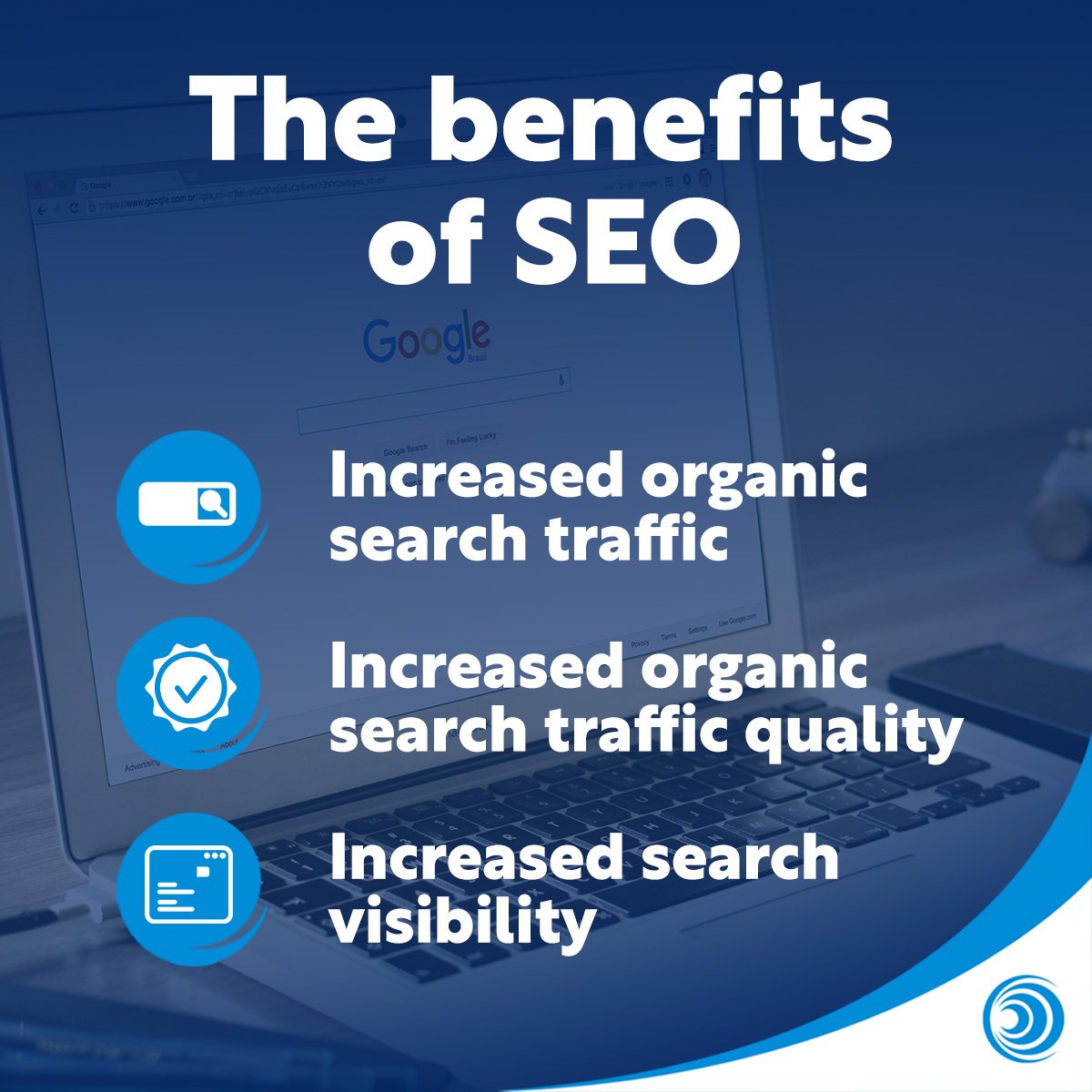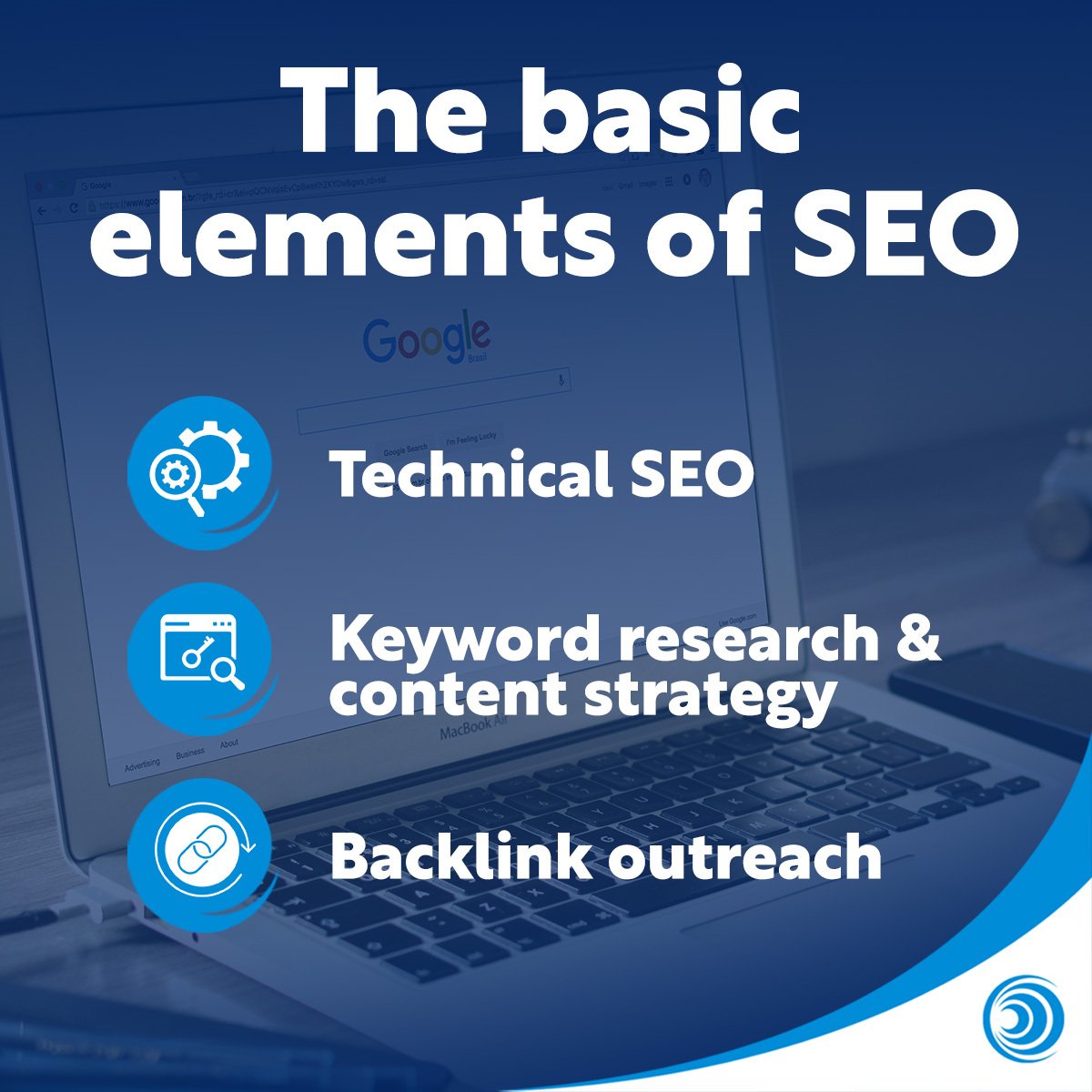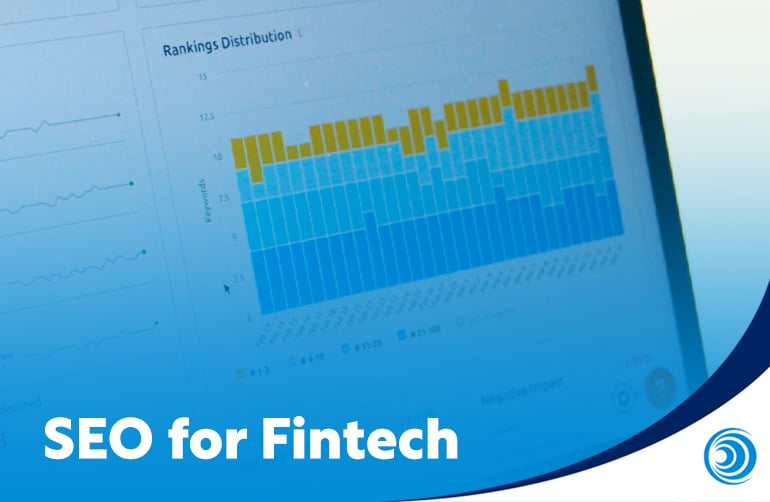- AI Visibility: How Brands Get Surfaced in Large Language Models - January 9, 2026
- Best Fintech Marketing Campaigns - November 3, 2025
- 5 Fintech Copywriting Tips That Actually Work - November 3, 2025
Content Summary
The blog below explores why SEO is essential for fintech companies and how to build strategies that attract qualified, long-term traffic in a competitive, regulation-heavy market. SEO helps fintechs increase visibility, authority, and customer acquisition without relying solely on paid advertising. However, effective fintech SEO requires a balance of technical precision, compliance awareness, and clear communication tailored to complex buyer journeys and specialised terminology.
Important points:
- SEO drives sustainable, high-quality traffic at a lower cost than paid media.
- Fintech SEO demands sector expertise, clear messaging, and compliance-friendly content.
- Core elements include technical optimisation, keyword research, content creation, and backlink building.
- Effective strategies start with audits, keyword mapping, content tailored to intent, and continuous monitoring.
- Success depends on understanding the fintech audience and balancing SEO with paid marketing efforts.
This article is aimed at fintech marketers, founders, and growth leaders who want to strengthen their digital visibility and attract qualified leads organically. By developing a focused SEO strategy rooted in fintech expertise, businesses can build brand authority, reduce customer acquisition costs, and gain a lasting competitive edge.
Fintechs that ignore SEO risk falling behind.
It can consistently bring a lot of highly qualified leads to your website if you have an effective SEO strategy in place.
But SEO can be hard to keep up. In our experience as a fintech marketing agency, many marketers find that SEO is a field filled with different areas (technical SEO, on-page SEO, off-page SEO, etc.), strategies, jargon, and sometimes contradictory advice.
Search Engine Optimisation (SEO) can be a powerful, long-term lead generation tool when used effectively. But the landscape is complex—especially for fintech businesses operating in niche, competitive markets. From technical SEO to content strategy and backlink building, there’s a lot to unpack.
Furthermore, special considerations need to be made for different industries, including, of course, fintech.
So, let’s first take a look at what exactly SEO is, why it’s important for fintech and what is unique about SEO for fintech.
In this article, we will discuss:
- What is SEO?
- The benefits of SEO for fintechs
- The basic elements of SEO
- What makes Fintech SEO different?
- How to build an effective Fintech SEO strategy
TL;DR: Why Fintechs Need SEO
- Furthermore, SEO brings long-term, high-quality traffic at a lower cost than paid ads.
- It builds brand authority and improves visibility in fintech-specific searches.
- Fintech SEO strategies must account for complex buyer journeys and industry jargon.
What is SEO?
SEO stands for Search Engine Optimisation, which is the digital marketing discipline for improving a website so that it ranks higher in search engine results pages (SERPs) – mainly Google, which has a 92% share of search engine markets worldwide.
SEO involves both technical elements (making your website crawlable and fast) and creative ones (writing useful content that matches search intent). In fintech, it requires a special understanding of complex terminology and digital behaviour.
Why is SEO important for Fintech?
Fintech audiences are primarily online. Whether you’re B2C or B2B, your customers are searching for solutions using Google. If you’re not showing up, your competitors are.
Key reasons SEO matters:
- Qualified traffic: SEO attracts users actively searching for solutions you offer.
- Brand authority: High rankings build trust and reinforce your position as an expert.
Cost efficiency: SEO requires upfront investment, but generates ongoing returns—unlike paid ads, which stop delivering as soon as you stop spending.
The benefits of SEO

Let’s take a closer look at what exactly this means.
1. Increased organic search traffic
Organic search traffic refers to visitors who find your website through unpaid search engine results. This traffic grows over time as your pages climb the rankings.
Many fintechs underestimate how much traffic can be generated from non-brand, intent-driven keywords.
2. Increased organic search traffic quality
SEO doesn’t just bring more traffic – it brings the right traffic. For example:
- Ranking for “card manufacturers” may bring lots of clicks—but from people looking for greeting cards.
- Ranking for “EMV card issuing fintech” attracts exactly the right kind of user.
3. Increased search visibility
Search visibility is the percentage of total possible clicks you capture across all keywords you rank for. High visibility means you’re getting seen more often by the right audience.
Think of it like shelf space in a digital store: SEO gives your fintech better positioning.
For example, if 31% of users who search a specific keyword then click on your top-ranking result, it means you have a search visibility of 31% for that keyword.
Once you average out the percentage share of clicks you get for all of your target keywords, you will have a broader search visibility metric.
This means potential customers have a higher chance of finding you rather than your fintech competitors. This is the prize most of our fintech clients relish!
Your website’s website’s high visibility in search engines can be compared to shelf space. You are there and available where customers need you.
The basic elements of SEO
SEO can be roughly divided into the following three categories:

1. Technical SEO
Technical SEO covers a range of aspects related to your website’s ‘crawl-ability’ (i.e., how easily Google’s bots can ‘crawl’ and understand it) and speed.
Special SEO software can help you crawl your website and reveal any technical issues.
The most well-known SEO software is Ahrefs and Semrush. Once you have set up a paid account, they offer good site audit tools.
There are also more specialist technical audit-focused tools such as Screaming Frog, Sitebulb, Lumar, etc.
Each site has different technical issues. There are too many to list here. But common ones include:
- Broken links
- Slow-loading pages
- Missing page titles
- Incorrect sitemaps
- Robots. txt
- Incorrect canonicals
Technical SEO involves fixing or improving these issues so that your site is easier for both Google and users to access.
2. Keyword research & content strategy
Keyword research is the process of finding what your target audience is searching for, how often, and how difficult it is to rank for those terms.
Important metrics:
- Search volume: How many people search this keyword each month?
- Keyword difficulty: How competitive is it?
- Search intent: Is the user looking to buy, learn, or compare?
Content should:
- Use fintech-specific language
- Address specific questions or problems
- Be aligned with keyword search intent
Different types of content include:
- Homepage and service pages (for core keywords)
- SEO blogs (to target long-tail and informational keywords)
3. Backlink outreach
Backlinks are links from other websites to yours. They are critical for SEO authority. Effective tactics include:
- Guest posting on fintech publications
- Creating link-worthy content (e.g. data studies, infographics)
- Reaching out to partners and directories for profile listings
Not all backlinks are equal. Focus on:
- Relevance to fintech
- Domain authority
- Natural placement in content
What makes SEO different for Fintech?

SEO for fintech is SEO work undertaken by SEO specialists who also understand fintech.
As mentioned earlier, ultimately Google’s algorithm has one primary goal: to give its users the most relevant and best quality results for their searches.
Therefore, to deliver these results, understanding the fintech market and how your solution meets the needs of a consumer or B2B audience is vital.
Know your fintech
“To complicate is simple, to simplify is complicated…” the artist Bruno Munari once said.
Content that ranks will sink or swim based on user metrics. Google will know how long visitors stay on your page, their next action is (i.e., do they leave and go back to the same results and click on another result?), etc.
Therefore, you need to keep visitors on your site with good, clear, engaging words and imagery that meets search intent.
Without a good knowledge of fintech marketing, you might find your SEO efforts result in content including keywords in an unsophisticated way. This will disrupt user experience and lead to high bounce rates.
The other important consideration regarding fintech marketing relates to budgets. Fintechs don’t tend to have a large amount of cash available for long-term paid ad spend (PPC).
This makes developing an SEO strategy a vital marketing activity as it is likely to be a lower-cost, long-term strategy.
Know your target audience.
Knowing a product or service well is important. So too is knowing your audience.
Fintech is a complex industry spanning consumer and B2B offerings from back-office technology providers, issuers, acquirers and a plethora of supporting services.
It’s important to keep in mind the multitude of interdependencies and perspectives that need to be evaluated when planning how you sell your services within the ecosystem.
In fintech, the nature of job roles can be less formally defined than in other industries.
This needs to be kept in mind when planning your fintech SEO strategy and content, especially in the start-up space.
You might, for example, encounter a CFO who is also head of marketing, which would affect the orientation of your content.
Fintech SEO strategy: Where to begin
There are many different routes you can take to improve your site’s SEO. Understanding search engine algorithms is key to developing an effective SEO strategy that aligns with how search engines rank content.
These include technical audits and site speed optimisation, backlink campaigns, on-page optimisation, and much more.
Which strategy you choose depends on multiple factors, such as the size of your domain, your domain authority, your niche, your competitors, and more.
However, here are some general points that should be considered when you are formulating your strategy.
1. Start with a Technical Audit
Before writing any content, make sure your site is accessible to Google. Prioritise crawl errors, broken links, and mobile speed.
2. Build a Keyword Map
Organise keywords by:
- Intent (informational vs. transactional)
- Funnel stage (awareness, consideration, decision)
- Page type (service page vs. blog)
3. Create High-Quality Content
Start with easier, low-difficulty keywords and build up. Ensure content:
- Matches search intent
- It is well-written and accurate
- Uses fintech-specific examples
4. Plan a Backlink Campaign
Identify competitors’ backlinks, categorise them, and reach out to similar sources. Prioritise relevance over volume.
5. Monitor and Adapt
Use Google Search Console and tools like Ahrefs or Semrush to track:
- Rankings
- Click-through rates
- Page speed
- Technical errors
Update content as needed to maintain or improve rankings.
FAQS: SEO for Fintechs
What makes fintech SEO different from other industries?
Fintech SEO must account for complex buyer journeys, regulatory content, and highly specific terminology. It’s more nuanced than general B2C SEO.
How long does it take for fintech SEO to show results?
Most SEO strategies take 3–6 months to show measurable traffic improvements, though this can vary based on competition and domain authority.
Is SEO better than paid advertising for fintechs?
SEO offers sustainable long-term visibility at a lower cost, whereas paid advertising provides immediate but short-lived traffic. A hybrid strategy often works best.
Conclusion
Many fintechs are surprised to learn that people are not searching for their services using the expected terms.
The development of every SEO strategy should include brainstorming of every search term your team can think of. But be prepared to discover that your customers may think differently.
Prioritising SEO tasks is crucial. You don’t want to waste time completing exhaustive technical audits and backlink campaigns when there is still content to be written or updated.
When it comes to writing content, quality should come before quantity for many reasons. 100 A+ articles are worth more than 400 D- ones.
Breaking through to the mass market is tough for both consumer and B2B fintechs. While paid advertising is a sure-fire tactic for quick results, it can be very expensive, especially in the early days of market entry.
Investing what can be a fraction of the cost in developing a solid SEO strategy is likely to be a wise decision with long-term benefits.
